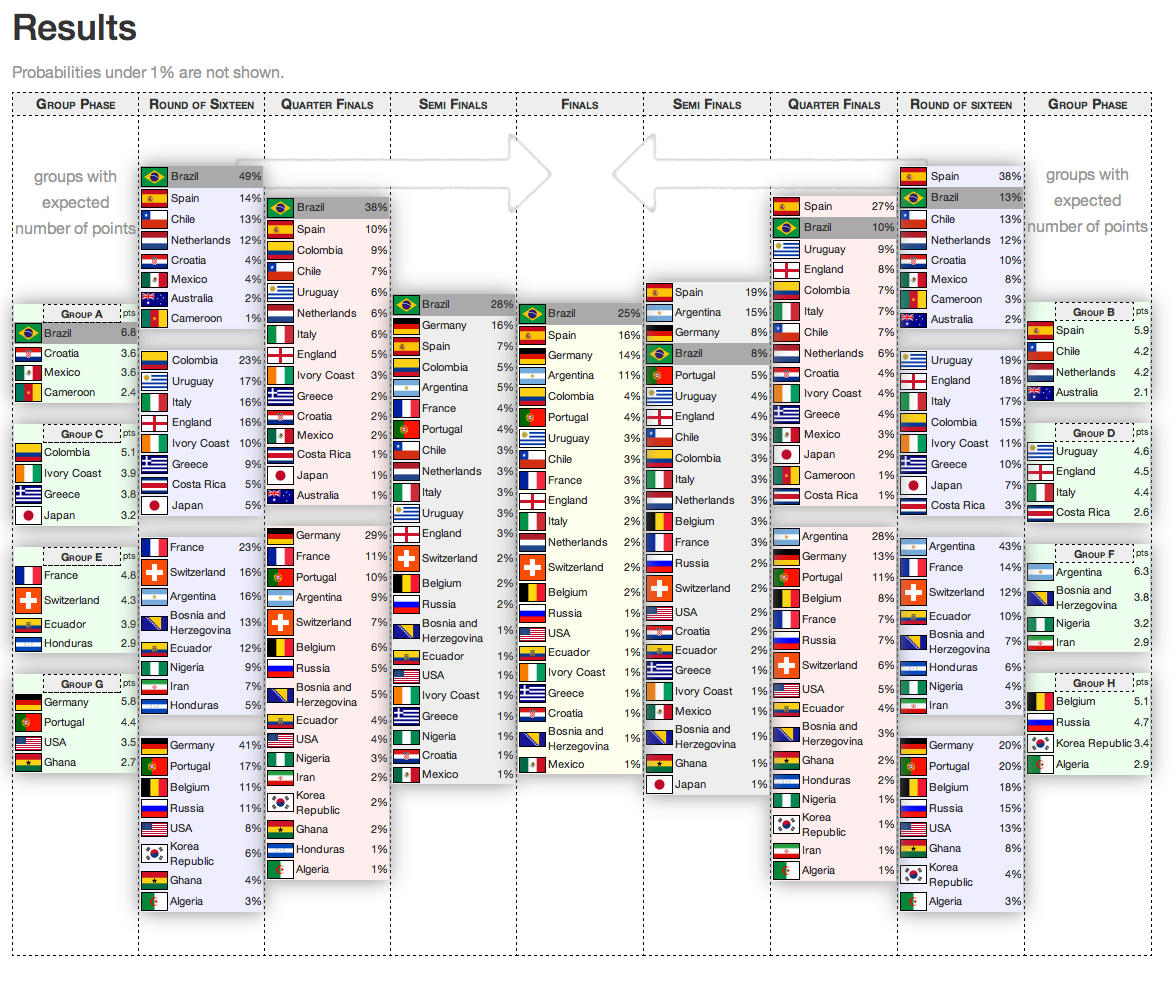And the winner is …
Computer Scientists at Freie Universität Develop Simulator for Soccer World Cup
№ 184/2014 from May 26, 2014
It is still a few days until the FIFA World Cup starts … if you are tired of waiting, you can get involved immediately. Computer scientists David Dormagen and Raul Rojas from the Intelligent Systems and Robotics Group at Freie Universität Berlin developed software that lets you host the World Cup on your computer at home. The simulator is readily accessible via the Internet. Users can set or modify the simulation parameters, providing their own estimation of which are the appropriate indicators for measuring the skill level of the different national teams. The simulator can be found at: www.worldcup-simulator.de.
The virtual World Cup games are simulated based on the rankings of the 32 participating teams. Both the FIFA and Elo rankings assign a certain number of points to the national teams corresponding to their estimated strength, based on games held in the past. If there is a large difference in the respective playing strength of two teams, the team with the higher rating has a higher probability of winning. The games are played on the basis of such probabilities computed from historical data. The better team does not always win –even good teams can have a bad day. The computer tries to model such eventualities by using stochastic selection of the winner based on the difference in playing strengths.
In order to find out which team will become the world champion, all games in a virtual world cup are played. But in soccer randomness and the current fitness level play a big role. A single simulation is not reliable enough. Therefore the “virtual world cup” is run up to 10,000 times. With this aggregation method, the statistical progress of each team can be measured up to the finals. At the end, the system calculates the relative frequency with which a team like Brazil or Spain reaches, for example, the quarterfinals, semifinals, or even the final game. Such frequencies represent the odds for any given team of winning the championship.
In the simulator, home advantage and even the market value of the players can be used as factors influencing victory or defeat. Users can assign weights to the various rankings and factors. For example, if users think that the FIFA ranking is more significant than the market value, they can assign the former a higher weighting factor.
According to the calculations of the simulator, currently the favorite teams are Brazil, Argentina, Germany, and Spain. There is an almost 66 to 70 percent probability that one of these four teams will win the next World Cup. It would be a big surprise if none of these four teams reaches the finals.
Presse Image
The following screenshot of the simulator screen is available for members of the media for download. It is free of charge for use in connection with the press release, provided that due credit is given to © Intelligent Systems and Robotics Group, Freie Universität Berlin.
Link to the Simulator
Further Information
Prof. Dr. Raúl Rojas, Department of Mathematics and Computer Science, Intelligent Systems and Robotics Group, Freie Universität Berlin, Tel.: +49 30 838-75102, Email: information-ki@fu-berlin.de

